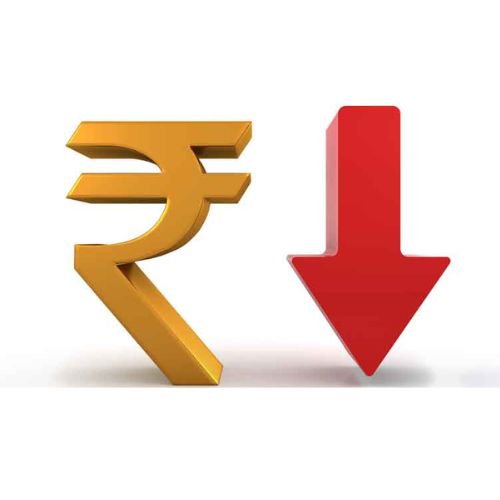A recent survey conducted by Reuters, consisting of 42 economists, suggests that India’s economic growth has decelerated in the October-December quarter due to diminishing demand, and is expected to lose further momentum due to a series of interest rate hikes that would weigh on economic activity. The poll predicts that the country’s gross domestic product (GDP) growth in the last quarter has reduced to an annual rate of 4.6%, as per the median forecast of the economists surveyed between Feb 10-24.
In the months of April-June, the economy had grown by a significant 13.5%, which can be attributed largely to statistical distortions resulting from the pandemic. However, the growth rate moderated to 6.3% in the subsequent quarter of July-September.
According to a monthly survey conducted by Reuters, the growth rate of India’s economy is expected to decelerate further to 4.4% in the current quarter. Moreover, the average growth rate projected for the economy for the fiscal year 2023/24 is 6.0%, lower than the official government estimate of 6.5% published at the end of January.
The survey also reveals that forecasts for the period of October-December 2022 are wide-ranging, with predictions ranging from 4.0% to 5.8%. However, all respondents of the survey anticipate a slower growth rate compared to the previous quarter. Three-quarters of the economists forecasted a growth rate of below 5.0% for this period.
The weakening demand and the impact of the interest rate hikes on economic activity are said to be the primary reasons for the economic slowdown. As a result, the country’s GDP growth rate has been projected to decrease in the near future.
The forecast for the economy’s growth rate in the upcoming years remains subdued, with the average growth rate being lower than the government’s estimate. Therefore, policymakers would need to take measures to mitigate the negative impact on the economy and help it recover from the ongoing slowdown. The official figures for the October-December quarter of 2022 are scheduled to be published on February 28th.
Sakshi Gupta, who serves as the principal economist at HDFC Bank, suggests that the normalization of base effects is contributing to the downward pull on the annual growth figures of the Indian economy. Additionally, the agriculture sector may not provide as much support as it has in the past, and the manufacturing sector could hinder growth. Gupta also believes that the slowdown can be attributed to a decrease in exports and consumer demand, while investments remain stable. Furthermore, inflation remains persistently high, and interest rates are increasing, adding to the challenges faced by the economy. Gupta notes that pent-up demand is also beginning to moderate.
To combat inflation, the Reserve Bank of India has increased interest rates by a total of 250 basis points since May of last year, and it is anticipated that rates will be raised once again in April. The impact of these past rate hikes is expected to affect consumption and economic growth with a lag.
Additionally, external demand is likely to decelerate as major central banks around the world continue to raise interest rates. Upasana Chachra, who serves as the chief India economist at Morgan Stanley, believes that while domestic economic growth is expected to remain stable, weak global conditions may have a greater-than-expected spillover impact, which could have significant implications for the Indian economy in the short term.














